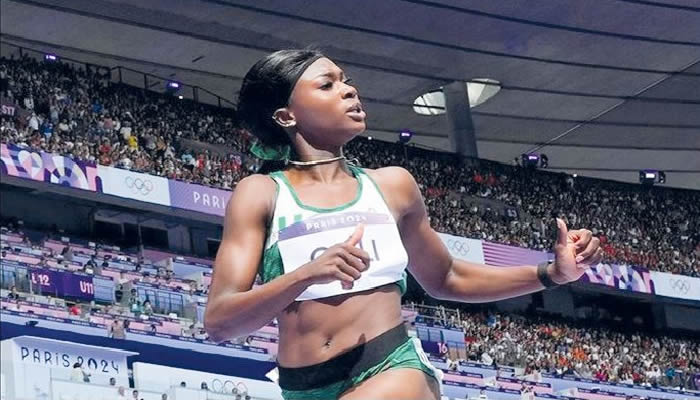Favour Ofili, a rising star in track and field, finds herself at a crossroads, her athletic future shrouded in uncertainty due to potential nationality switch complications. The 22-year-old sprinter, who recently represented Nigeria at the Paris 2024 Olympics, is rumored to be considering a switch to represent Turkey, a decision reportedly driven by years of frustration with administrative failures and systemic negligence within the Nigerian athletics federation. This potential move, however, has been met with a significant hurdle in the form of World Athletics’ eligibility rules, which stipulate a mandatory three-year waiting period before an athlete can compete for a new country. This effectively sidelines Ofili from major international competitions for a significant portion of her prime athletic years, unless an exception is granted.
The situation highlights the complex interplay between athlete welfare, national pride, and the stringent regulations that govern international sports. Ofili’s case underscores the precarious position of athletes who, despite demonstrating exceptional talent and dedication, are often left vulnerable to the shortcomings of their national sporting bodies. The three-year waiting period imposed by World Athletics aims to prevent opportunistic nation-hopping and maintain the integrity of international competition. However, it can also be viewed as a punitive measure that disproportionately affects athletes seeking refuge from dysfunctional or neglectful sporting systems. The rule leaves athletes in a difficult position, forced to choose between enduring suboptimal conditions in their home countries or facing a substantial period of competitive inactivity while waiting to represent a new nation.
Ofili’s potential switch raises broader questions about the responsibility of national sporting federations to provide adequate support and resources for their athletes. For many athletes, representing their country on the global stage is a pinnacle of achievement, a testament to years of hard work and sacrifice. However, when national federations fail to provide the necessary infrastructure, funding, or administrative competence, athletes’ dreams can be jeopardized, leading to disillusionment and, in cases like Ofili’s, a desire to seek opportunities elsewhere. The Nigerian athletics federation’s alleged failures, which reportedly include administrative bottlenecks and a lack of adequate support for athletes, have seemingly pushed Ofili to consider a drastic change in her athletic allegiance.
The potential loss of a talent like Ofili is a blow to Nigerian athletics and serves as a cautionary tale for other national sporting bodies. Ofili’s impressive track record, including breaking the Nigerian 200m national record previously held by Blessing Okagbare, underscores her potential for future success. Her decision to potentially leave Nigeria not only deprives the country of a promising athlete but also highlights a systemic issue that could deter other young talents from pursuing athletics within the Nigerian system. The situation underscores the need for urgent reforms within the Nigerian athletics federation to address the underlying issues that contribute to athlete dissatisfaction and prevent further exodus of talent.
The three-year waiting period imposed by World Athletics, while intended to maintain fairness in international competition, also raises ethical questions about the restrictions placed on athletes’ freedom of movement and representation. While the rule aims to prevent nations from poaching established athletes from other countries, it also creates a barrier for athletes seeking to escape unfavorable conditions or pursue better opportunities. The rigidity of the rule leaves little room for nuanced considerations of individual circumstances, potentially penalizing athletes who are victims of systemic failures within their national sporting federations. The case for a more flexible approach, perhaps incorporating an appeals process that considers extenuating circumstances, becomes compelling in situations like Ofili’s.
Ofili’s situation remains unresolved, pending official confirmation of her nationality switch and any potential appeals to World Athletics for a waiver of the waiting period. The outcome of her case will have significant implications not only for her own athletic career but also for the broader conversation about athlete welfare, national sporting systems, and the regulations that govern international competition. The hope is that this situation will serve as a catalyst for positive change, prompting national sporting federations to prioritize athlete support and fostering a more equitable and supportive environment for athletes to thrive. The ultimate goal should be to create a system where athletes feel valued, supported, and empowered to represent their countries with pride, rather than feeling compelled to seek opportunities elsewhere due to systemic failures.


